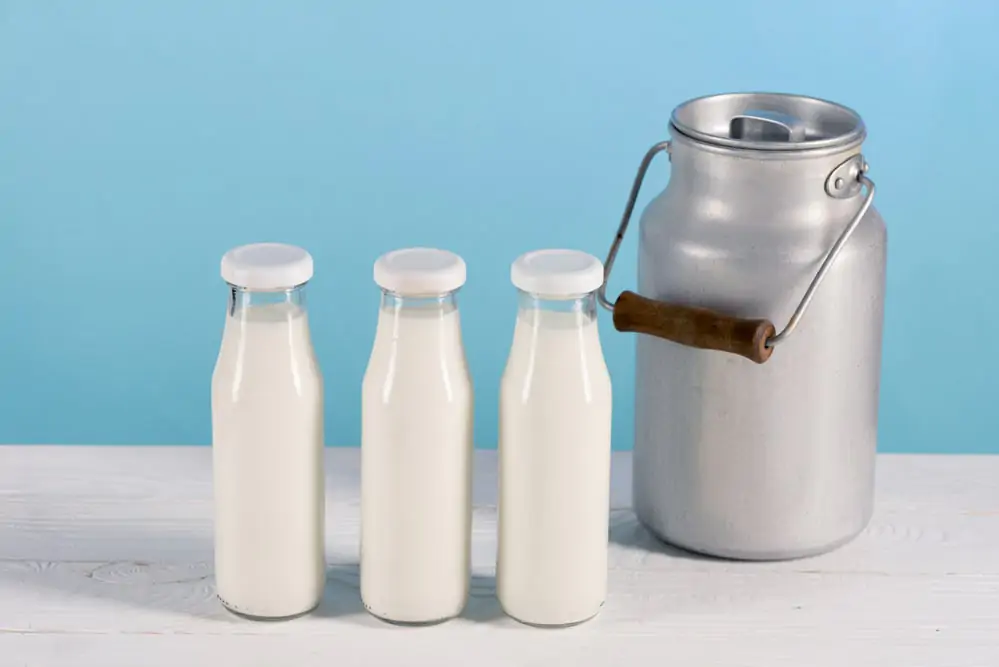Why does coffee upset your stomach? We’ve got a 3-step process to eliminate troublesome symptoms you should try.

There’s nothing worse than having something you enjoy start wreaking havoc on your daily life.
Coffee is said to be extremely healthy; according to researchers, it’s the number one source of antioxidants for most Americans. But if drinking it gives you stomach aches, cramping, or bowel problems, You may be thinking you’ll have to give it up forever.
Before going the nuclear route, try these suggestions. You might find that with just a tweak or two, you can still have your coffee and drink it too!
1. Narrow down Your Symptoms
The first thing is to understand exactly how your discomfort is manifesting.
- Do you get abdominal pain when you drink coffee on an empty stomach?
- Do you have symptoms of acid reflux shortly after drinking coffee?
- Do you experience irritable bowel syndrome or bloating?
Each of these symptoms can be caused by a different effect the coffee is having on your body, so it’s important to understand your symptoms.
Once you’ve identified your unpleasant symptoms (and there can definitely be more than one), the next step is to try and treat yourself with some simple changes to your routine. This is often the best way to reduce or eliminate minor discomfort.
Tip: Drink the right tea for acid reflux. You might also be interested in finding out the best coffee for a hangover.
2. Change Your Morning Routine
Now that you know exactly what’s happening, try changing around a few parts of your morning routine and see if your symptoms go away.
So, for instance, if you find that you experience an upset stomach or cramping in the morning, make sure you’re not drinking coffee on an empty stomach.
Coffee is acidic. So is your stomach, but filling it with coffee and nothing else can increase your stomach’s production of gastric acid and make it rumble or cramp unpleasantly.
Try eating some breakfast with your morning cup of joe and see if it helps.
If it seems to lessen but not completely go away, try changing up your breakfasts. A croissant might soak up a little bit of coffee and reduce your stomach’s acidity, but a heartier breakfast like a bowl of oatmeal or yogurt and a banana should have an even greater effect.
You can also try waiting until mid-morning to have your coffee, a few hours after you’ve eaten, to see if it helps.
3. Switch up Your Coffee Preferences
If changes to your morning routine have no effect on your symptoms, then you should try changing your coffee.
Here are some adjustments you can try.
Reduce Your Caffeine
If you experience heartburn or GERD, try changing your coffee beans.
Over-caffeination has been pinpointed as the main cause of acid reflux after coffee consumption. Heartburn is the most common gastrointestinal symptom reported to health professionals after imbibing coffee, so it’s been studied quite a few times.
Turns out, caffeine causes our lower esophageal muscles to relax, and too much caffeine causes them to over-relax in some people, letting stomach acid travel back up the esophagus and giving you that familiar burning sensation. It can also rev up acid production, making your stomach more acidic and causing increased heartburn.
Switch to a dark roast if possible. The darker coffee beans are roasted, the less caffeine content they contain.
Studies have caused health professionals to settle on an amount of about 400 mg of caffeine as a safe daily consumption rate. (Pregnant women are advised to halve that to 200 mg daily.) That’s equivalent to about 4 cups of coffee. Anything over about 500 or 600 mg of caffeine will cause acid reflux in many people.
If this doesn’t help, try switching to decaf coffee to see if it gets rid of your symptoms. If you love the taste of coffee but don’t really need the caffeine, decaf may be a good option for you.
Reduce Your Coffee’s Acidity
A second common cause of acid reflux is the chlorogenic acid in your coffee beans overstimulating your digestive tract.
This can be remedied by using coffee beans with less chlorogenic acid. While it has health benefits including protecting the liver and suppressing carcinogens, it is also a common stomach irritant, and consuming coffee with lower acid levels should be a focus of coffee drinkers who suffer from GERD.
Shade-grown coffee contains less acid than coffee grown in full sun, so look for shade-grown coffee beans and try them out. If your heartburn is mild, this may do the trick.
Another adjustment you can make is cold-brewing your coffee using cold water overnight. Cold brew coffee is gentler on our digestive system, containing less acidic compounds than coffee brewed with hot water. This is recommended if your GERD is severe or long-lasting.
Also, try adding eggshells to your coffee grounds. This makes the brew more alkaline, further reducing the acidity.
Remove the Dairy

Bowel issues and bloating are the common symptoms of lactose intolerance.
If you’re adding milk or half-and-half to your coffee, check to make sure you’re not having trouble digesting the lactose in dairy.
Many coffee lovers find to their relief that it’s not the coffee that is causing bloating, but that they’re experiencing lactose intolerance. Try using lactose-free dairy products or switching to black coffee.
The Final Word on Does Coffee Upset Your Stomach
No matter what negative symptoms coffee gives you, you should be able to find a way to enjoy it without feeling terrible every morning.
With just a few tweaks to your morning coffee routine, you can enjoy a bit of morning pick-me-up without worry.
Don’t let your stomach keep you from enjoying a bit of hot coffee in the morning!
Want to learn more?
How Does Coffee Affect A Blood Test?
FAQs on Coffee and Stomach Pain
What coffee is easiest on the stomach?
Darker roasts, like French roast or Italian roast coffee beans, have lower acid content and study participants in research trials experienced fewer symptoms of acid reflux when drinking them.
Also, making coffee using a cold brew process instead of traditional hot water methods makes coffee more alkaline, leading to fewer GERD symptoms.
Is coffee good for gut health?
Yes, research has shown that it encourages healthy bowel movements and stimulates the growth of beneficial gut bacteria.

